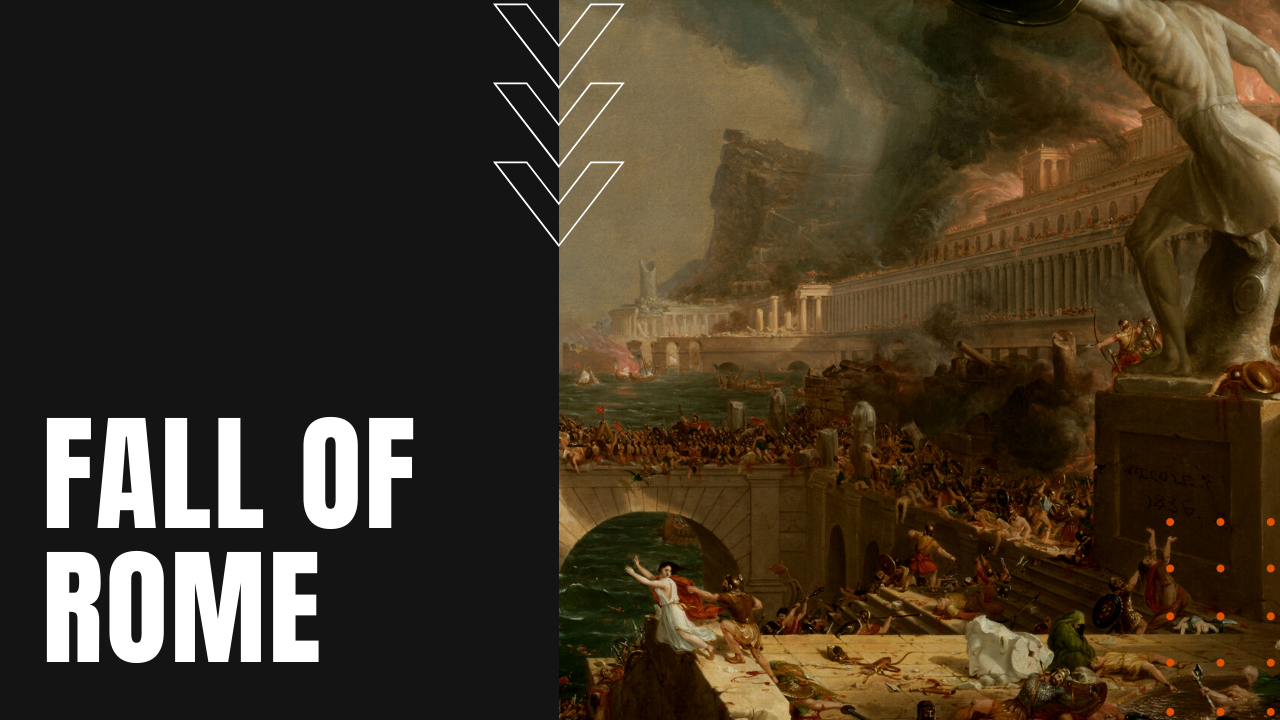Fall of Rome: Why the Western Roman Empire Ended

Arguably one of the most legendary empires in human history, beginning in the third century AD, a host of internal and external factors witnessed the slow winnowing of a once-dominant Roman empire.
What Caused the Fall of Rome?
From an internal standpoint, centuries of constant warfare, high taxation, and overspending widened the gap between rich and poor, leading many wealthy Romans to flee into the countryside to avoid taxation altogether. Slave labor began to dry up as Rome’s geographic expansion came to an end, and after Emperor Diocletian divided the empire into a western half governed from Milan and an eastern half governed from Constantinople, the two halves drifted apart culturally and politically, although the Eastern Roman Empire would linger on in one form or another for an additional one thousand years before falling to the Ottoman Empire in the 1400s.
Another leading cause of the fall of the Western Roman Empire was its own geographic overreach. At its height, The Roman Empire stretched from the Atlantic Ocean to the Euphrates River in the Middle East, and despite a state-of-the-art road network, the Romans suffered from slow communication in defense of local rebellions and outside invaders.
Corruption became widespread among Rome’s government officials, including the senate itself, leading many Romans to lose faith in the competency of their government. As a result, soldiers came under short supply, forcing a string of emperors to hire mercenaries in defense of Roman territories. After the Huns invaded much of Europe in the late fourth century, Germanic tribes like the Visigoths were pressed up against the borders of the Roman Empire. Roman leaders begrudgingly let the goths spill into their empire, yet their brutal mistreatment of Germanic tribesmen forced a rebellion by Goth King Alaric in the year 410, which resulted in the sacking of Rome, followed by the steady invasion of Britain, Spain and North Africa.
The final straw that broke the Western Roman Empire was the spread of Christianity, which after centuries of persecution became legalized in 313 by The Edict of Milan, later becoming the official state religion in 380. No longer did Romans worship polytheistic gods, which for centuries maintained that Roman emperors were divinely inspired. Instead, popes and church leaders took an ever-increasing role in the political affairs of the Western Roman Empire, bringing an end to a once-mighty world power.
